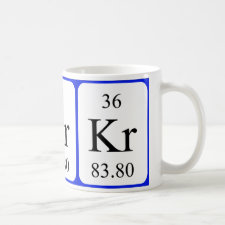
Authors: Mudiam MKR, Chauhan A, Jain R, Dhuriya YK, Saxena PN, Khanna VK
Article Title: Molecularly imprinted polymer coupled with dispersive liquid-liquid microextraction and injector port silylation: A novel approach for the determination of 3-phenoxybenzoic acid in complex biological samples using gas chromatography-tandem mass spectrometry.
Publication date: 2014
Journal: Journal of Chromatography B
Volume: 945-946
Page numbers: 23-30.
DOI: 10.1016/j.jchromb.2013.11.030
Alternative URL: http://www.sciencedirect.com/science/article/pii/S1570023213006430
Abstract: A novel analytical approach based on molecularly imprinted solid phase extraction (MISPE) coupled with dispersive liquid-liquid microextraction (DLLME), and injector port silylation (IPS) has been developed for the selective preconcentration, derivatization and analysis of 3-phenoxybenzoic acid (3-PBA) using gas chromatography-tandem mass spectrometry (GC-MS/MS) in complex biological samples such as rat blood and liver. Factors affecting the synthesis of MIP were evaluated and the best monomer and cross-linker were selected based on binding affinity studies. Various parameters of MISPE, DLLME and IPS were optimized for the selective preconcentration and derivatization of 3-PBA. The developed method offers a good linearity over the calibration range of 0.02-2.5 ng mg-1 and 7.5-2000 ng mL-1 for liver and blood respectively. Under optimized conditions, the recovery of 3-PBA in liver and blood samples were found to be in the range of 83-91%. The detection limit was found to be 0.0045 ng mg-1 and 1.82 ng mL-1 in liver and blood respectively. SRM transition of 271 -> 227 and 271 -> 197 has been selected as quantifier and qualifier transition for 3-PBA derivative. Intra and inter-day precision for five replicates in a day and for five, successive days was found to be less than 8%. The method developed was successfully applied to real samples, i.e. rat blood and tissue for quantitative evaluation of 3-PBA. The analytical approach developed is rapid, economic, simple, eco-friendly and possess immense utility for the analysis of analytes with polar functional groups in complex biological samples by GC-MS/MS
Template and target information: 3-phenoxybenzoic acid, 3-PBA
Author keywords: molecularly imprinted polymer, Dispersive liquid-liquid microextraction, Injector port silylation, Gas chromatography-tandem mass spectrometry



Join the Society for Molecular Imprinting

New items RSS feed
Sign-up for e-mail updates:
Choose between receiving an occasional newsletter or more frequent e-mail alerts.
Click here to go to the sign-up page.
Is your name elemental or peptidic? Enter your name and find out by clicking either of the buttons below!
Other products you may like:
 MIPdatabase
MIPdatabase









